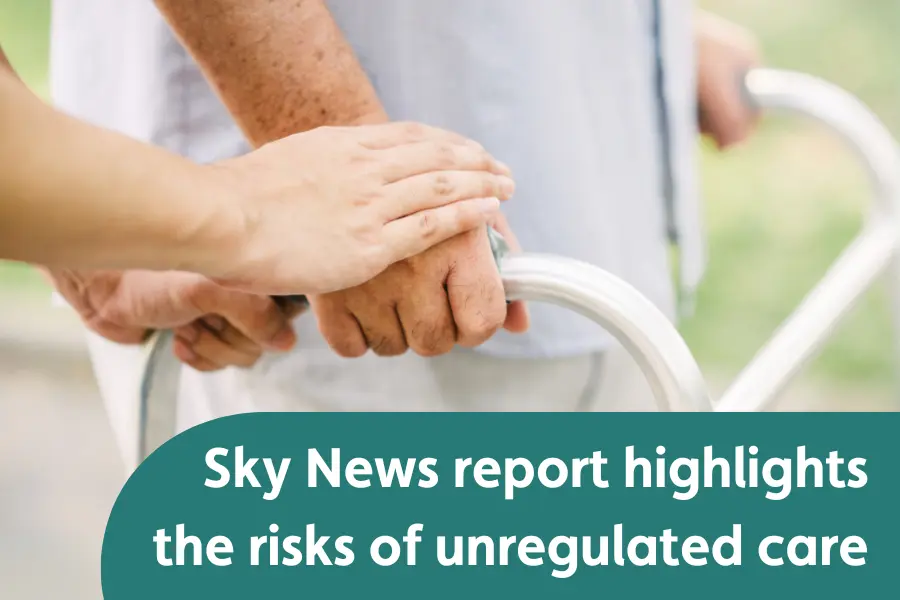Coming home after a hospital stay can feel overwhelming, whether it’s yourself or a loved one. While leaving the hospital is a positive step, the transition home requires planning to ensure a smooth recovery. With the right care and home adjustments, the process can be much easier and less stressful.
This guide breaks down 10 important factors to consider when planning post-hospital care, so you can feel confident about the road ahead.
From understanding the right type of care to managing medications and preparing your home, each step is important to a successful recovery. Whether you’re planning for short-term recovery or long-term care, these considerations will help ensure a smooth, comfortable transition back to your everyday life.
1. Plan for Hospital Discharge Early
Discharge planning should begin as soon as possible to ensure a smooth transition home. The hospital environment can be busy, so starting early helps ensure all arrangements are in place before leaving. Taking the time to plan ahead means you’ll feel more prepared and confident about the next steps.
It’s also helpful to ask hospital staff if there are any written resources, such as leaflets or guides, about your condition or treatment. Many hospital units provide concise, reliable information in handouts that can help you understand what to expect and where to seek further support.
You could start by asking:
- What ongoing care will be required?
- How should medications be managed?
- Are mobility aids or home adaptations needed?
- When is the first follow-up appointment?
Involving family, Caregivers, or healthcare professionals in the planning process helps ensure that all bases are covered – giving you the knowledge and support you need to focus on recovery.
2. Assess Needs for Care at Home
Home care needs vary depending on the individual’s medical conditions and recovery process. Care may include medication

For medical care, ensure that medications, wound care, and therapy are understood and manageable. Monitoring for complications is also essential. If mobility has been affected, additional support may be needed to help with moving around, dressing, or personal care.
Emotional well-being is just as important. Many people feel isolated or anxious after a hospital stay. Ensure there is a system for regular companionship and mental stimulation. Planning these aspects early ensures that the person feels comfortable and supported at home throughout their recovery.
3. Choose the Right Type of Care after Hospital Discharge
Choosing the right care following discharge from hospital is vital for recovery. Options vary based on the level of assistance needed. For those who need ongoing care but wish to stay at home, domiciliary care may be suitable.
- Live-in care provides full-time support from a Caregiver, ideal for individuals needing regular assistance with daily activities, mobility, and personal care.
- Visiting care involves Caregivers coming to the home at scheduled times to provide help with tasks like medication management, meal preparation, and personal care.
- Respite care is short-term support, either at home or in a residential setting, to provide a break for family Caregivers.
For those with complex medical needs, residential or live-in care might be necessary for round-the-clock supervision. Understanding which type of care is required ensures proper recovery and reduces unnecessary stress.
4. Prepare the Home for a Safe Discharge from Hospital
Home safety is key to a smooth transition from hospital to home. Making adjustments to the living space helps prevent falls and ensures a comfortable environment for recovery.
Start by assessing the home for any hazards:
- Install grab rails in the bathroom, stairways, and other high-risk areas.
- Remove loose rugs, clutter, and other obstacles to create clear, safe paths.
- Ensure there is adequate lighting, particularly at night, to reduce the risk of accidents.
Additionally, consider medical equipment like mobility aids, adjustable beds, and pressure-relief mattresses, depending on the care needs. Preparing a recovery area with essential items within reach – such as water, medication, and personal items – also ensures comfort and ease during recovery.
5. Manage Medications and Follow-Up Appointments for Care Needs
Managing medications and attending follow-up appointments are key to preventing complications and promoting recovery. Before leaving the hospital, confirm medication details:


- What each medication is for and how it should be taken.
- Potential side effects and what to do if they occur.
- The duration of the prescription and when refills are needed.
Setting up a system for managing medications – using a pill organiser or setting alarms – helps ensure doses are taken as prescribed. It’s also important to track appointments to ensure ongoing care.
Arranging transportation to follow-up appointments, whether through family, friends, or non-emergency services, ensures that medical visits are not missed. Keeping a record of symptoms and medication schedules helps track progress and identify issues early.
6. Understand the Costs of Care and Funding Options
Understanding the financial aspects of care can help you plan effectively. Some care services are funded by the NHS or local authorities, depending on eligibility.
- NHS reablement care offers short-term, free support to help individuals regain independence after hospitalization.
- Continuing Healthcare (CHC) provides full funding for individuals with significant ongoing health needs.
- Local authority support may fund some or all care costs based on income and needs.
If NHS or local authority support is unavailable, private care services offer flexible options. This may include paying for live-in or hourly Caregivers. Other financial options to consider are savings, pensions, or long-term care insurance.
A care needs assessment from the local council is a key step in determining which services you’re eligible for, helping ensure that the right support is provided based on your specific needs.
7. Prevent Hospital Readmission
Reducing the likelihood of hospital readmission should be a priority after discharge. Early detection of complications can help prevent setbacks in the recovery process.
Professional Caregivers play a key role in spotting warning signs early, such as infection, worsening symptoms, or reactions to medication. Monitoring vital signs, tracking health progress, and identifying subtle changes can lead to quicker interventions, preventing further health issues.
Encouraging safe mobility and regular activity, such as walking or gentle stretching, also contributes to recovery. These movements help reduce the risk of complications like blood clots or muscle weakness.
With regular check-ins from healthcare professionals, Caregivers, or family members, any signs of concern can be addressed promptly, ensuring early intervention and reducing the chance of readmission. This proactive approach significantly supports long-term recovery and well-being.
8. Ensure Proper Nutrition and Hydration


Focus on:
- Protein-rich foods for muscle repair and recovery.
- Fibre for digestive health and to prevent constipation.
- Fluids to stay hydrated and maintain circulation.
If preparing meals is difficult, family members, Caregivers, or meal delivery services can provide assistance. Meal delivery programs designed for older adults or those recovering from surgery can ensure that nutritional needs are met.
Staying hydrated and eating nutrient-dense meals plays a crucial role in supporting the body’s natural healing process.
9. Arrange Emotional and Social Support When you Leave Hospital
Recovery involves not just physical health but also emotional well-being. After a hospital stay, individuals may feel isolated, anxious, or depressed. Regular companionship and social support help reduce these feelings.
Stay connected through:
- Visits from friends and family.
- Engagement in hobbies or activities that stimulate the mind.
- Participation in support groups for people with similar health conditions.
Caregivers can also provide emotional support by offering companionship, listening, and encouraging activities that promote mental health.
Ensuring that there’s someone available to check in regularly and offer emotional support helps foster a positive outlook and a smoother recovery process.
10. Handle Legal and Administrative Considerations for Ongoing Care
While healthcare needs are the focus post-discharge, handling legal and administrative matters can make future care decisions easier.
Key Legal Considerations:
- Power of Attorney – Ensures someone can make medical or financial decisions on the individual’s behalf if needed.
- Advance Care Planning – A document outlining treatment preferences and care goals in the event of a future medical crisis.
- Medical Records – Keep track of hospital discharge summaries, treatment plans, and medication lists.
Having a clear understanding of legal rights and responsibilities ensures that care plans are followed and decisions are made according to the individual’s wishes.
Need Support?
Planning for care after a hospital stay can feel overwhelming, but it doesn’t have to be done alone. The right support can make all the difference in ensuring a successful recovery.
Whether you’re looking for guidance on care options, funding, or managing the recovery process, our team is here to help. Get in touch to explore how we can support you or your loved one during the transition home.
Chloe joined us in early 2024 as our content manager. Having earned a first-class degree in digital marketing and spending more than six years in public relations, she’s well-placed to shape informative content and heartfelt stories that help inform our clients and connect them with the care they need.
Having worked across a multitude of different industries before care, Chloe’s passion lies in the meaningfulness of her work – from creating content that guides clients through their care journey to helping Caregivers find a rewarding new role.
At Unique, Chloe finds fulfilment in our supportive culture and the heart-warming stories from both clients and carers that highlight the impact of our services.



